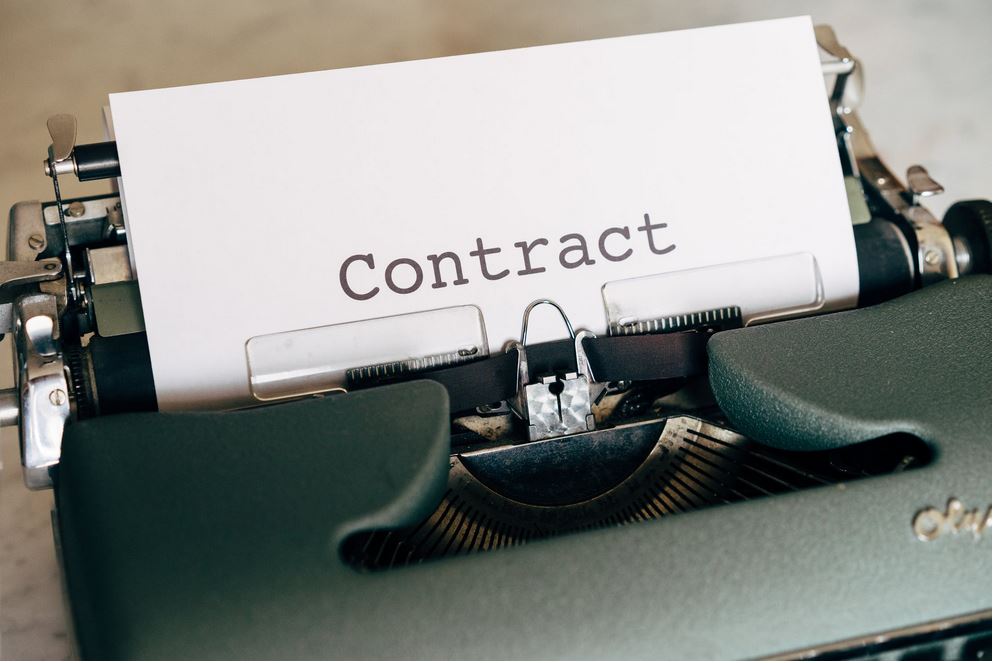|
Contracts. If you’ve never written one, they are scary and daunting. You break out in a sweat with the thought of having to write one up. Rather than write a contract, you’d readily risk doing business without one, or simply not do business at all. The familiar artist contracts are full of legalese gibberish that can make your eyes cross! Plus, they are tedious to initially write, if you don’t want to hire a lawyer. Many creatives classify them as the boring side of doing business. You’re creative. Writing painfully detailed, explicit documents that outline your project zaps the fun out of it. Good news! Writing a contract doesn’t have to be a nightmare. You can keep it short. You can use plain language that’s easy for everyone to understand. AND you don’t need a lawyer. Let’s look at why you need one, and how to get started (plus a few downloadable templates). 1. Keeps things simple: Why not dodge a few bullets?The business side of art is something you need to embrace if you are to make money doing what you love: creating stuff. A contract helps keep things simple. Too many freelance artists and writers skip this part and begin the project right away. You may think that since you’ve never had issues, why bother? Well, at some point your luck may dry up, and you’ll wish you had that contract. As Sam Goldwyn stated: “A verbal contract isn’t worth the paper it’s written on.” Without a contract you invite disaster, as you blindly enter a project without a confirmed plan. Your project becomes high risk from a monetary perspective, and to your professional reputation. Regardless of whether you know the client or not, it’s good to have one. All parties need to know what’s involved in the project, along with acceptable requests and requirements. Let’s consider what you need to include when writing a contract. 2. Outlines everyone’s expectations (avoid nasty surprises)Unless you like nasty surprises, costly mistakes, and sleepless nights, you can "ixnay" the contract. If that’s not you, read on. Like any business, doing work for someone requires lots of discussion and pre-planning. The main reason for a contract is to outline everyone’s expectations, fees due, copyright and so forth. Contracts help open the dialogue around these project elements. Most importantly, contracts help prevent misunderstandings, scope creep, non-payment, and other bad experiences. Think of having a contract as a way to force both yourself and the client into thinking in terms of a project plan. A contract helps both parties understand due dates, and required resources. It also helps (through discussion) determine any unforeseen obstacles. That way your project is less likely to encounter glitches. Without a contract, the chance for failure increases exponentially as the project advances. A contract acts as a safety net. Why wouldn’t you want some protection? 3. Helps set parameters (why it’s good to have a plan)Although not as detailed as a project plan, a contract helps set parameters, and outline key project details. If you are freelancing, you don't need a complex contract written in legal jargon. You can determine what contract type you want to use. However, publishers and agencies often provide their standard contract. Some things you need in a contract are:
Contract resources to get you startedBelow are some resources, including a few contract templates (a great starting point to make your contract creation easier). Although free to use and revise, use these templates at your own discretion. These templates contain legal information, not legal advice. If in doubt, always get professional legal help. This ensures you set your template up to suit your needs and situation. Resources:
4. Helps ward off bad clients (unless you like extra stress)Contracts help ward off bad clients (but are not foolproof). They show that you are serious about your work. Clients that don’t like to pay for work or request ridiculous amounts of revisions are not as likely to sign a contract as someone that understands this is work, not play. If someone gives you grief prior to a contract signing, they are likely to cause issues throughout the project. Part of good business is in understanding the people you want to work with. Try to not get caught up in the excitement of having a project. You need to question the integrity of the client, and whether the project is likely to be a pleasant experience. Do your research. Often bad clients have a history that’s easy to find on the Internet. If your gut says “no”, listen to that. Otherwise, you risk working for free, and jeopardizing your reputation. 5. Makes you look professional (which you are)As tough as it is to get your contract template set up, you’ll be glad you did. Using a contract helps steer your career in a more stable, satisfying path. They make you look professional through your actions. You’ll find that you:
What are you waiting for? Your clients await! If you liked this blog post, you may also like: Comments are closed.
|
Categories
All
|
Privacy policy
Copyright 2024 Patricia Pinsk


